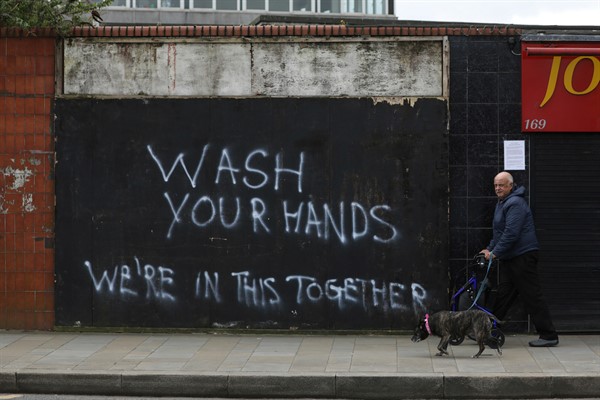DUBLIN—On the first Saturday in March, British Prime Minister Boris Johnson and his fiancée, Carrie Symonds, could be found standing among an 81,000-strong crowd at a stadium in Twickenham, just west of London. There, they watched England play Wales at rugby, shook many an unwashed hand and joined heartily in celebrations as England narrowly bested its rival.
But here in Dublin, Ireland’s normally bustling capital, the rugby field was empty that day. That was because the government had cancelled Ireland’s scheduled match with Italy as one of its first precautions against the spread of the novel coronavirus.
Days later, the government closed schools, universities and child care facilities, and banned mass gatherings. All non-essential businesses throughout Ireland, including pubs, were then ordered to close. The lockdown is only scheduled to be lifted gradually later this month. Yet in Northern Ireland, which is part of the United Kingdom, schools, pubs, restaurants, cafes and other businesses remained open until Johnson ordered them shuttered in stages starting on March 20.

